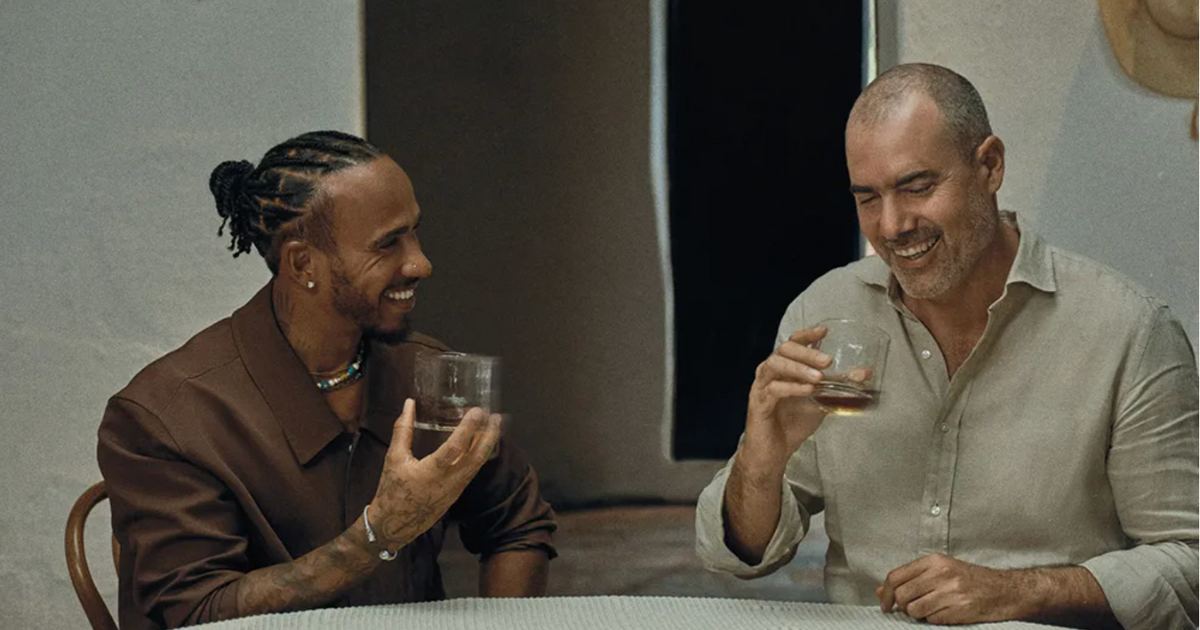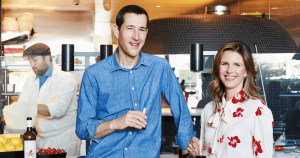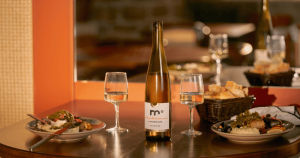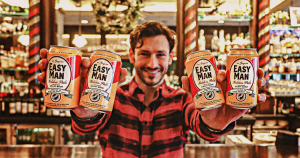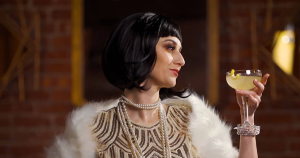Celebrities continue to shape the non-alc landscape
Two notable figures have joined the string of celebrities entering the non-alc space. Formula 1 champion Lewis Hamilton has launched a non-alc blue agave spirit named Almave, and singer-songwriter Zayn Malik has taken a significant role as the co-owner and Chief Creative Officer of Mixoloshe. Almave was inspired by Hamilton’s own journey with sobriety and aims to provide a sophisticated alternative to traditional tequila. Mixoloshe now offers the Lychee Martini by Zayn, showcasing the brand’s commitment to innovative mocktails.
The alcohol alternatives industry has recently seen a surge in celebrity endorsements and ventures. Early high profile collaborations include Bella Hadid’s involvement with Kin Euphorics and Katy Perry’s with De Soi. Hamilton and Malik’s announcements echo ones we’ve seen in the past 90 days alone: Danny Trejo’s non-alc tequila and Bethenny Frankel’s association with Mingle Mocktails.
The increasing involvement of celebrities in the non-alc space underscores the industry’s growth and potential. Their influence can significantly shape consumer perceptions, drive brand awareness, and potentially introduce a new audience to the benefits of alcohol alternatives. As more high-profile figures align themselves with the sector, it presents an opportunity for brands to leverage star power for market disruption.
But, there are risks. Some in our mindful drinker community have voiced that celebrity endorsements and ventures are nothing more than superficial cash grabs. The challenge for these brands will be to ensure authenticity in their offerings, resonating with their celebrities’ values. Perhaps that’s why brands like Trejo have been so positively received; in that case, the founder had a clear, authentic motive for launching it.
CBD regulatory challenges emerge
The CBD beverage industry is navigating turbulent waters, especially in the UK and the US. In the UK, the Food Standards Agency (FSA) recently slashed the recommended daily dosage of CBD from 70mg to a mere 10mg, catching industry players off guard. Mindful Brands CEO Craig Hutchison likened the announcement to a “grenade,” emphasizing the challenges of operating in the functional space without a clear legal framework. Meanwhile, in the US, the lack of uniform national regulation for CBD products continues to pose challenges. While 15 states have legalized CBD-infused products, major players like Molson Coors have exited the CBD beverage category due to regulatory uncertainties. The US FDA has recognized the need for a clearer framework and is looking to collaborate with Congress to establish consistent guidelines.
Evolving CBD regulations underscore the importance of adaptability and foresight for brands in the non-alc space. The UK’s sudden shift in CBD dosage recommendations will necessitate product reformulations and marketing strategy overhauls for brands exceeding the new limits. In the US, the fragmented regulatory landscape can deter innovation. However, the silver lining is the evident consumer interest in CBD and its perceived health benefits. Brands that can navigate regulatory challenges while capitalizing on positive consumer sentiment will lead in this promising yet volatile market.
Heineken 0.0 makes its debut in Japan
Heineken has expanded its alcohol-free beer, Heineken 0.0, to the Japanese market, marking its presence in 110 markets globally since its inception in 2017. To promote its launch in Japan, Heineken planned a comprehensive campaign encompassing TV commercials, digital marketing, in-store promotions, and retail activities. Leveraging its partnership with Formula 1, Heineken 0.0 was pre-introduced at the Japanese Grand Prix. On October 16, the product launched in stores across major Japanese cities.
The introduction of Heineken 0.0 within the context of Japan’s deeply-rooted drinking culture is intriguing. Historically, Japan has been highly tolerant of alcohol consumption, with drinking considered a way to bond with colleagues. Often, work-related drinking is even seen as obligatory. However, there’s also a growing awareness of the negative impacts of excessive drinking. If Heineken 0.0 succeeds in Japan, it could signal a shift where individuals can enjoy the camaraderie of drinking without the pressure to consume alcohol. This move by Heineken might also inspire other brands to consider how they can cater to evolving consumer preferences in markets with strong drinking traditions.
Get the latest industry developments in your inbox. Subscribe to The Navigator, our weekly newsletter tailored for non-alc brand founders and operators.


